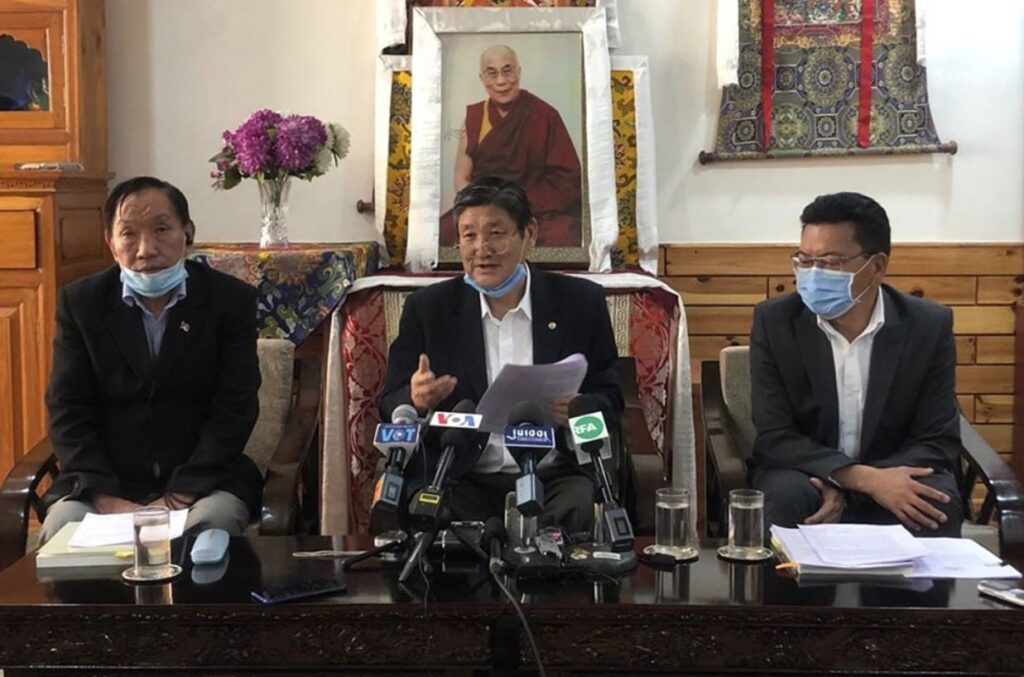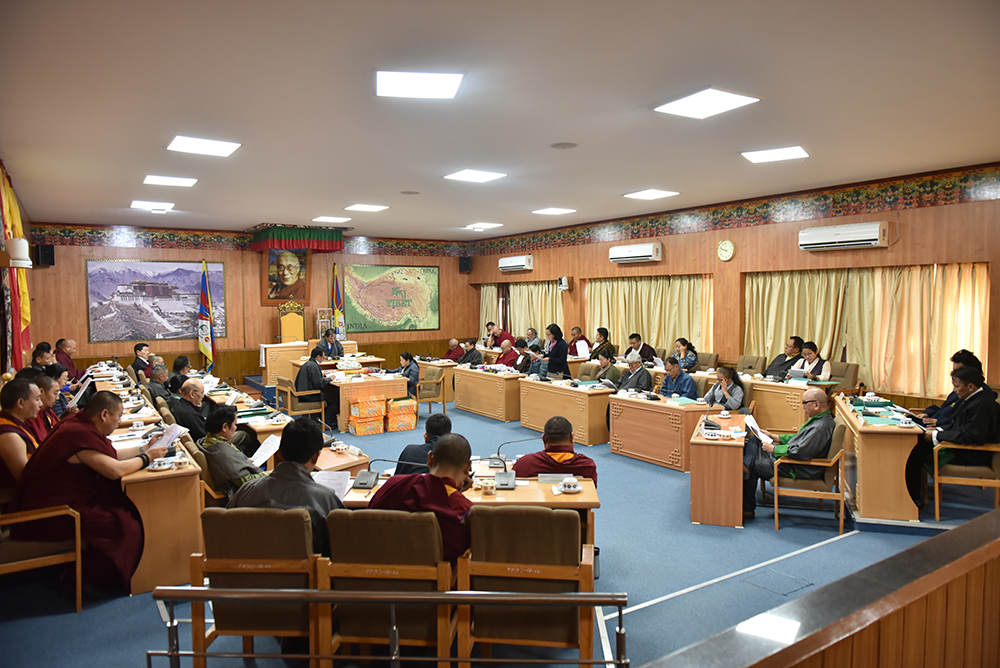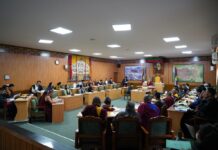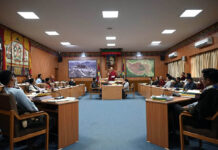
By Prof Nawang Phuntsog*
(TibetanReview.net, Apr01’21)
Like many concerned Tibetans all over the world, I was deeply disturbed that the Tibetan Parliament in Exile (TPIE) rushed to terminate the Tibetan Supreme Justice Commissioners (TSJC) on March 25th, 2021, without diligence and due process as required under Section 54 of the Charter of Tibetans in Exile. Effectively destroying one of the pillars of Tibetan democracy, the TPIE achieved the nefarious goal of introducing disarray and despondency amongst the Tibetan masses who are now without a well-functioning judiciary branch.
Once upon a time, the TPIE was perceived to be a venerated institution. Undoubtedly, this recent action has done considerable damage to the reputation and integrity of the TPIE. A dark stain now lurking within its walls, this is a sad reminder of the potentially difficult road that lies ahead to undo the recent removal of the Tibetan Justice Commissioners. The cultivation of pride and stature of an institution is a long, tedious, and time-consuming process. However, the destruction of its dignity is comparatively effortless, often done in the blink of an eye. For example, different media outlets reported that the TPIE spent less than 40 minutes on the ill-conceived resolution to remove the Justice Commissioners, followed by a nine-minute secret vote by the Tibetan Parliamentarians. This process is deemed unconstitutional and unlawful according to Article 54 of the Tibetan Exile Charter, which stipulates:
No discussion or question shall be raised in the Tibetan Assembly with respect to the conduct of the Chief Tibetan Justice Commissioner in the discharge of his or her duties, except in regard to the issue of removal of the Chief Tibetan Justice Commissioner made by the findings of a committee especially appointed by the Tibetan Assembly; and upon its recommendation to and with more than a two-thirds majority of the total members of the Tibetan Assembly.
Recognizing the gravity of undoing Tibetan Justices in possible situations like the one we witnessed a week ago, the Charter has delineated a process for the TPIE to exercise its power. Unfortunately, they took the shortest possible route in eagerness to settle its score with the judiciary branch. Surprisingly, the Kashag, or the executive branch, also showed its lapse of judgment when it took not even a single step to avoid what some have called a “constitutional crisis” or just purely “unwise and unjust,” as the Parliamentarian Kyinzom Dhongdue painfully penned it.

In the same recent public statement, the Parliamentarian Kyinzom Dhongdue claimed that “the 16th Parliament failed to fulfill both constitutional and political responsibilities by not holding a session in September 2020”. As a sitting MP, she was courageous enough to accept her responsibility for the dereliction of duty. Thus, the genesis of the problem lies with the postponement of the parliament session prompted by the pandemic, which has, understandably, forced schools and governments worldwide to adapt to become compliant with rules, laws, and requirements of respective institutions. Therefore, the TPIE’s Standing Committee has the responsibility to adapt and offer an online parliamentary session to comply with the Charter’s mandate. Dharamsala ought to have the capability to provide this opportunity for the 40+ parliamentarians. Why was this option not discussed and explored?
Similarly, Mr. Sither, in a recent op-ed in Phayul, alleged that the TPIE’s Standing Committee members violated the Tibetan Charter in Exile when they postponed the September parliamentary session. Based on Article 40 of the Charter, the TPIE’s Standing Committee must summon parliamentary sessions before the expiration of six months from the last session. It was, therefore, the rightful responsibility of the judiciary branch to ensure its compliance with the TPIE.
It is unclear whether or not the Standing Committee attempted to adapt and offer an online Zoom alternative for the face-to-face parliamentary session. This adaption would have avoided the embarrassment of having the dubious distinction of removing all Justice members simultaneously. With Kashag members’ attendance in the parliament deliberation, parliamentary sessions could have been invested in discussing issues paramount to the Tibetan masses’ aspirations. When the parliamentary session becomes a vital forum for Tibet issues, the CCP is likely to pay attention to how the TPIE reverberates all Tibetans’ yearnings in unison. The TPIE then becomes a force to reckon with. Could we hope and expect such a day to dawn in Dharamsala?
Well, we, the public, have a critical role in ensuring that this day shines in the exile community. The next election is right around the corner. Cast your precious vote for Chitues who will respect and uphold the exile Charter’s spirit above sectarianism, regionalism, and tribalism. We need Chitues to place national interest and aspirations above all and use the institutional processes ethically and lawfully to serve the Tibetan community. Similarly, it is crucial to elect a Sikyong who will encourage productive collaboration at all levels, maintain transparency, promote national interest above all, lead the CTA with integrity, passion, and ethical principle, and unite us all. The vote that can make all the difference in the next election is in our hands, so let us rally together, cast our votes with intention and care, and continue to work towards a Tibetan parliament that is a unifying and mobilizing force for all Tibetans.
References:
- Charter of Tibetan Exile:https://tibet.net/wp-content/uploads/2011/06/Charter1.pdf
- A Dark Day in Tibetan Democracy https://www.phayul.com/2021/03/28/45400/
- Parliament’s removal of the Chief Justice and two Justice Commissioners is as unwise as it is unjust https://www.phayul.com/2021/03/29/45408/.
—
* The Author is a recently retired Professor of Education residing currently in the US.






